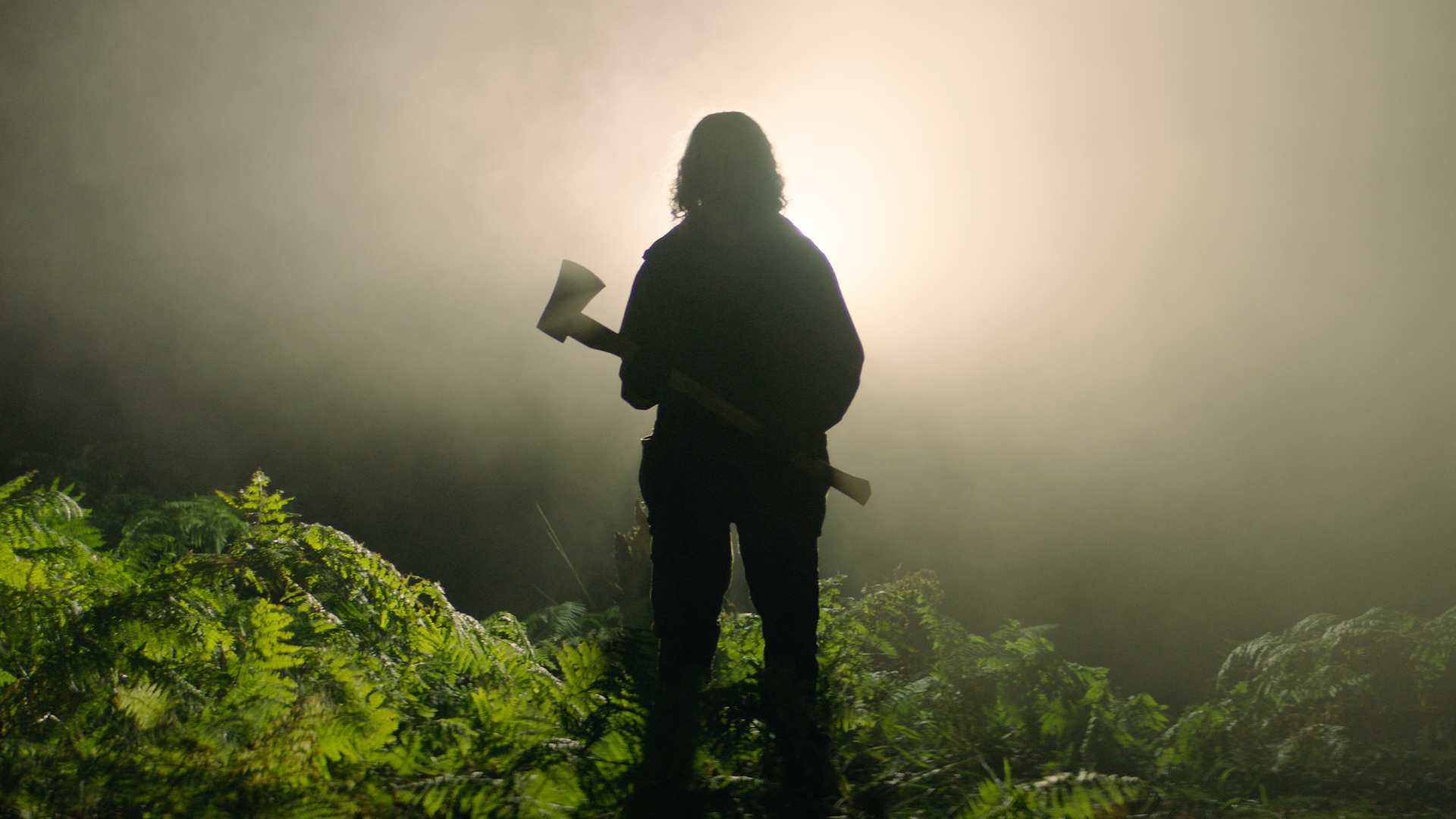
Jason Solomons meets Ben Wheatley, the director behind films like Kill List, Sightseers and Free Fire, ahead of the release of new movie In The Earth
Everyone went to the woods in lockdown. Remember all those walks, those endless trudges through mud and twigs and leaves and into forests you’d never bothered to visit, dragging kids there and maybe meeting up with friends if you could (you couldn’t really, not ’til later), and giving strangers furtive looks and the widest of berths on paths and bridleways?
Ben Wheatley’s new film digs into all that. In The Earth isn’t exactly a lockdown movie or even a film about Covid-19, and thank heaven for that. But it does take place in some vague sort of pandemic and it certainly goes deep into the woods. It’s a film about connections and consequences, about isolation, and science and nature. And, like all his best films, it’s mostly about the mulch of human nature.
Perhaps its real landmark quality is that In The Earth was the first British film to shoot during the Covid era. It’s certainly the first that I can recall giving a prominent page of credits for the Covid supervising team.
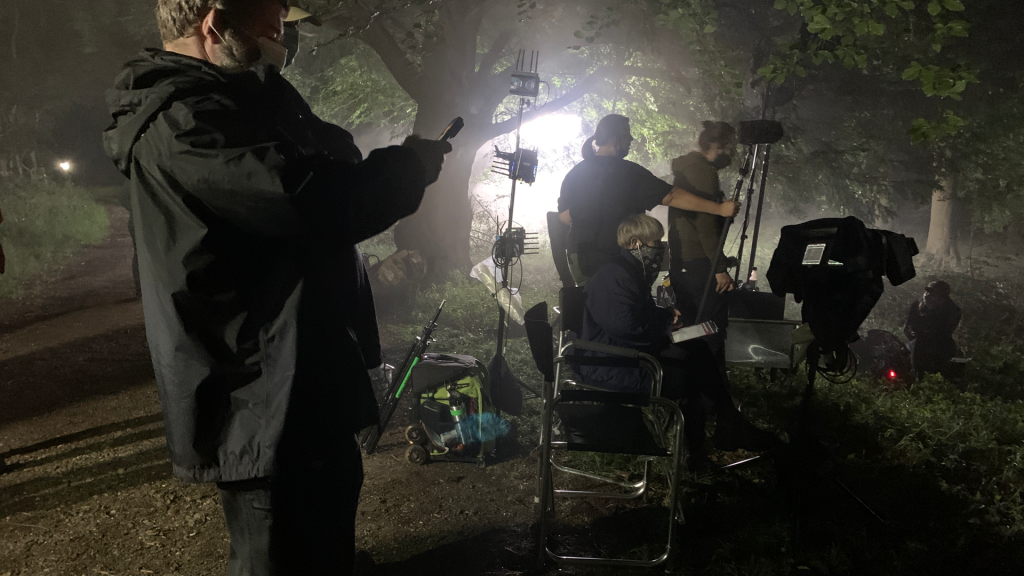
“There was a lot of pressure on us,” recalls Wheatley, the film-maker whose previous works such as Sightseers, A Field in England and High-Rise have also examined the darkness of British behaviour. “The eyes of the industry and the production community were on us and if we’d screwed up and had to shut down after three days, then that would have looked really poor and we might have scared people off getting back to work and getting the industry back on its feet.”
As the first lockdown ended in 2020, Hollywood movies such as Batman, Jurassic Park and Mission Impossible 7 got underway in the UK’s studios again, with various Covid issues immediately and very publicly arising: despite the superhero mask, lead actor Robert Pattinson was alleged to have tested positive, shutting Batman down and we all remember hearing that leaked audio of Tom Cruise bawling out some crew members who’d violated Covid protocols on his MI7 set, prompting the under-pressure star and producer into a tirade about sleepless nights, saving cinema and putting people’s kids through college.
Wheatley’s In The Earth is nowhere near that level but, he recalls, the pressure was intense. “Basically, we wanted to be safe,” he says. “No one wanted to get ill or get a virus just to make a movie. So the main amount of work went into making sure it was as safe an environment as possible and it was all really new territory for us and the people in charge of protocols – they deserve a prominent credit because if it wasn’t for their work, we wouldn’t have a movie, simple as that.”
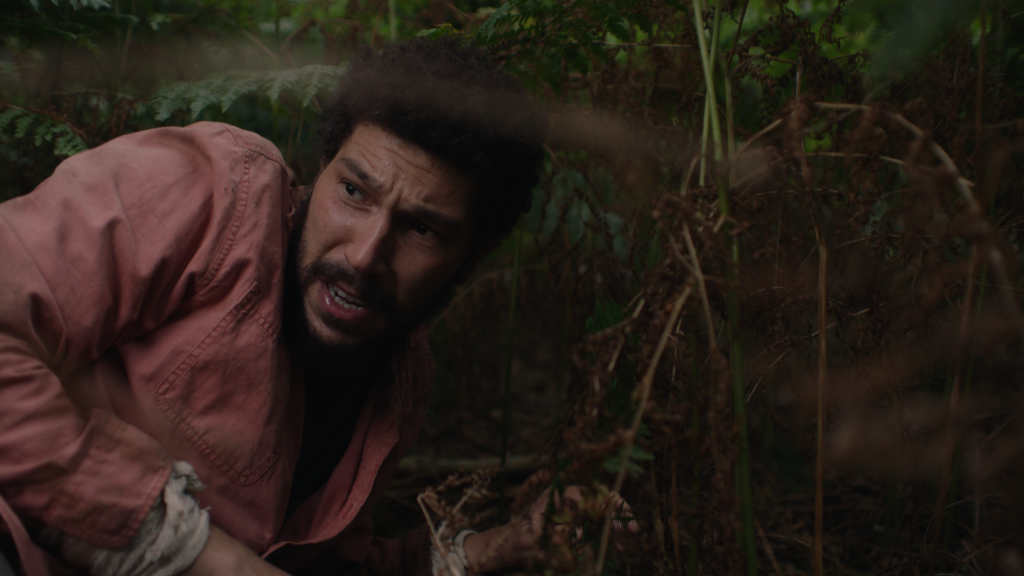
The unease, the uncertainty, certainly feeds into the film. In it, Joel Fry’s scientist Martin arrives at a base camp after a long quarantine. He’s swabbed and tested and given protective clothing, which will all appear very familiar to audiences watching it now, not something sci-fi at all. He then teams up with a park ranger Alma (Ellora Torchia) to go in search of a scientist, Dr Wendle, who’s gone missing deep in the forest while carrying out some unspecified research.
Set mainly outdoors and with a small cast, you can see how the film got around Covid filming restrictions. “Yeah,” says Wheatley in his unassuming Essex accent, “we did begin by working out what kind of film we could make and it wasn’t one set indoors in people’s houses or rooms because that would have been too restrictive in terms of the crew and having too many bodies in a close, unventilated space. That was the reality of the time and what we were facing so we tried to get round it as inventively as possible. Being outside felt like the safest option for everyone, so we wrote and made a film about the outdoors and nature.”
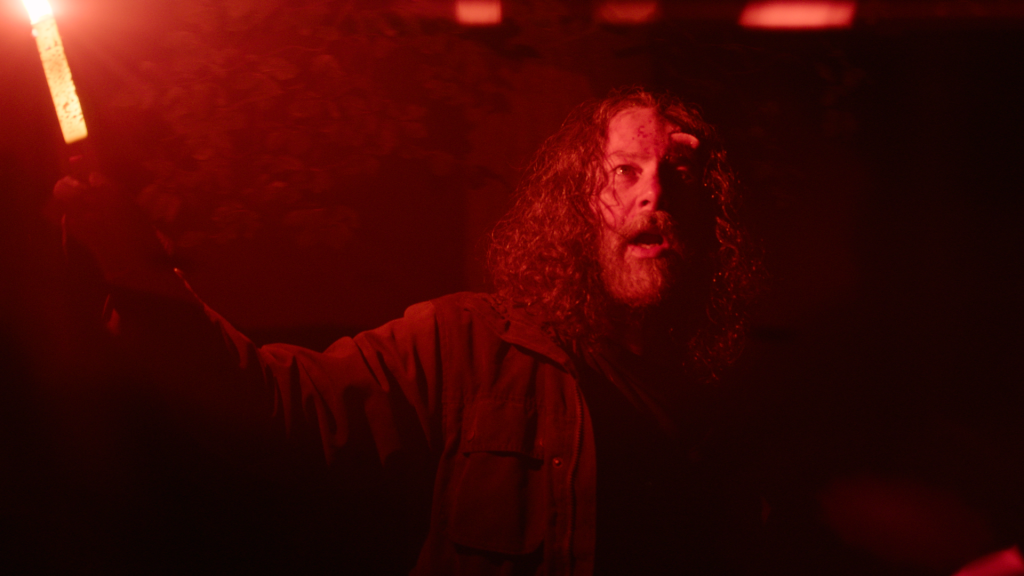
It seems simple. The action takes place in clearings or under canvas, with strange noises spooking into the night and injuries sustained, odd rashes breaking out in haunting patterns. and a creepy hermit called Zak (played by Inside Number 9 and League of Gentlemen star Reece Shearsmith) who takes them in, drugs them with herbal cordial and holds them captive.
The film spirals from there into something more psychedelic. When they do find Hayley Squires’ Dr Wendle, she’s become obsessed with the language of trees and cracking the code that connects fungi throughout the forest through the mycorrhizal network.
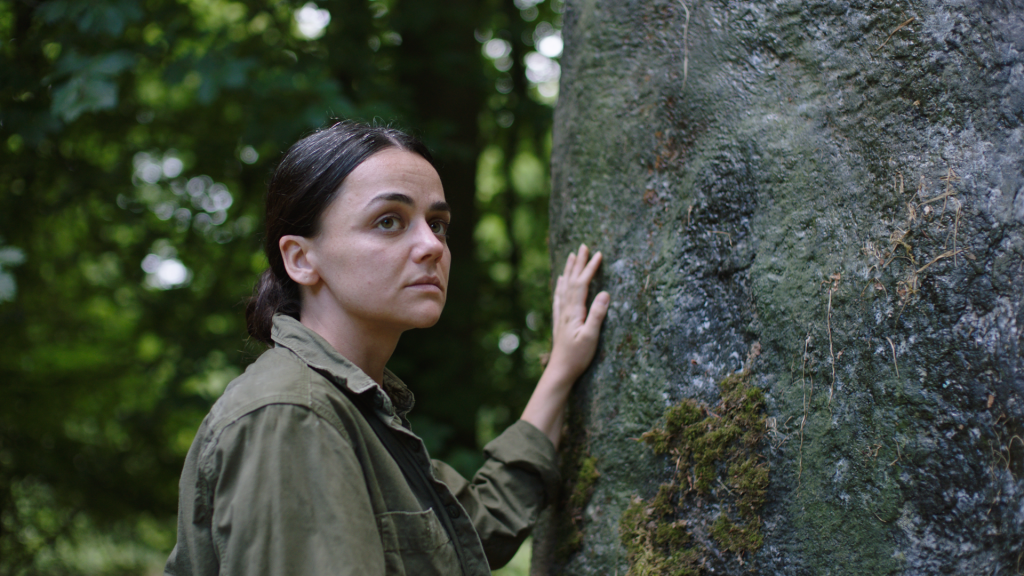
So was Ben Wheatley taking a lot of ‘shrooms during lockdown? “No way, I’m a middle-aged man,” he retorts with a laugh. “But I did get obsessed with fungi when I found out about the way they create these networks. I thought it was made up but I went down that rabbit hole and was fascinated by the fungal connections and the way trees can hear and talk to each other.
“Did you know some oak trees have a year when they produce tons of acorns and the squirrels just bury them only to find that the next year, they’ve grown into trees and aren’t food. How do trees know to do this? How do they know squirrels are so scatty?”
Geeky factoid or not, this will chime with all of us. There was certainly a return to a slower life, to contemplate the stillness of nature during the lockdowns, people listening to the silence and thinking about organic, as well as thinking about how we’re all connected, being in the same boat – we’re all in this together, remember that? – yet having to keep our social distance.
Wheatley’s work has often had something elemental about it, immersed in the very British roots of folk horror, that sort of Wicker Man thing, with a bit of Straw Dogs and Day of the Triffids and sci-fi such as Quatermass and 1970s Dr Who.
A Field in England, his 2013 black and white film which also featured Shearsmith, was about a troop of Civil War deserters taking mushrooms in a battlefield, with echoes of 1968’s Witchfinder General. It would make a great double bill with In The Earth in the cinema tent at some festivals if they’re allowed to go ahead this summer.
Through these bucolic British settings, Wheatley probes the deeper recesses of human nature. Zak and Dr Wendle have gone native, surrendered to the forest, prepared to defend their discoveries with a murderous zeal. They might threaten your life, but at least they’re vegan.
Perhaps they’ve heard the call of the Spirit of the Woods, the ancient myth of Parna Fegg, drawing and woodcuts of which adorn the base camp lodge walls and crop up in children’s doodling found in abandoned exercise books in the woods. This is typical Wheatley, typical of folk horror which mines and celebrates English folk heritage and pagan lore. You can’t tell if Wheatley’s in awe of it or deeply suspicious of it, or if he thinks it’s ridiculous.
This seam of precarious black comedy amid the madness was the signature, too, of perhaps Wheatley’s most successful comedy Sightseers, as two caravaners played by Steve Oram and Alice Lowe begin to murder people they don’t like who ramble across their path as they visit various tourist attractions, such as a pencil museum in Keswick. There are laughs in it, certainly, but there’s a brutal and anarchic streak that dominates, something unsettling. You could even say there’s a streak of Brexit in all Wheatley’s films, or at least the many urges which led to the fervour with which leavers voted for Brexit.
His violent ex-British army hitman thriller Kill List did the same, in 2011, climaxing in a Wicker Man-style conspiracy, while his 2010 debut film Down Terrace was about the dull life of low-level, white career criminals in the plain-looking Brighton suburbs, before it turns to killing. What’s scratching away at Ben Wheatley?
It is hard to tell. Basically, he just likes working, turning out a film whenever he can. In The Earth came about because of the delays Covid wrought on his next project, the big Hollywood/Chinese undertaking of The Meg 2: The Trench, a sequel to the ridiculously entertaining Jason Statham Megaladon shark blockbuster surprise from 2018.
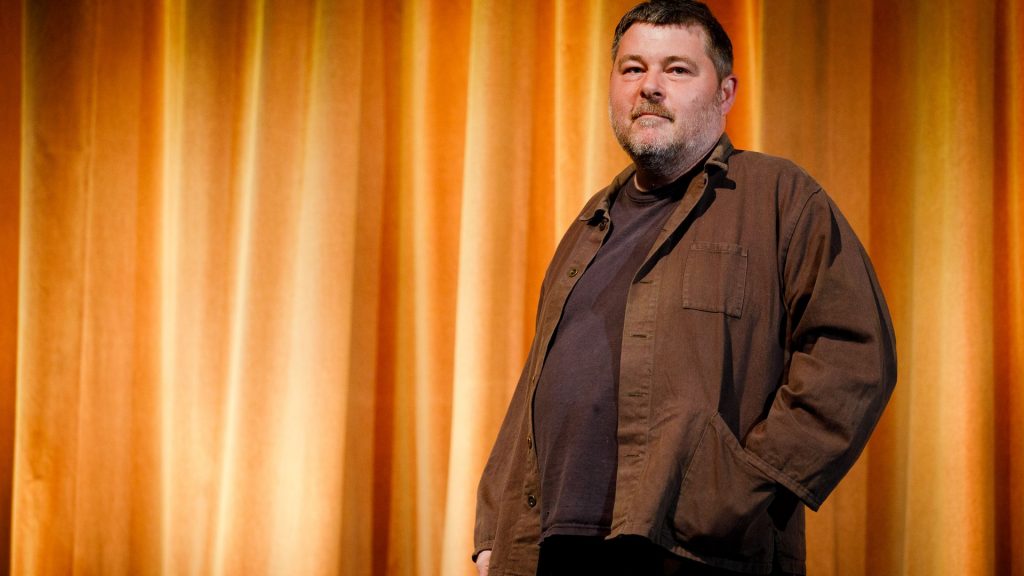
Creature features, monster movies, folk horrors, sit alongside his recent Hitchcock remake of Rebecca (a surprisingly, perhaps disappointingly, unthreatening version) and the spiralling madness of his JG Ballard adaptation High-Rise, examining the social interaction of the residents of a London tower block, a societal allegory and study, imploding from the lower floors to the luxury penthouse, featuring wild parties and a Versailles-style string quartet playing Abba.
Wheatley characters generally go off the rails, often taking the films and their plots with them as they go. This can be frustrating for viewers who wish he’d settle into some sort of category and make a picture that’s consistently as brilliant as many of its parts appear to be or as the opening premises promise to be.
In The Earth is the same, veering into madness in the final act, although given the constraints of its production and the rush to get it made before another lockdown consumed us all, such mayhem and madness is understandable on both a practical and thematic level.
Wheatley, who is married to his frequent co-writer and co-producer Amy Jump, is quiet man with a sly and warm sense of humour, and yet who exercises a certain detachment, not wishing to give too much away. But he’s also fiercely practical about making movies, planning and plotting his output with a clear-eyed ambition and a keen sense of his place in film history and the genres he’s working in, ticking off references from the Giallo horrors of Italian directors such as Dario Argento and Lucio Fulci, to the slashers of The Texas Chainsaw Massacre, the monsters and fantasy of stop-motion maestro Ray Harryhausen and the Hollywood brats of Martin Scorsese and Steven Spielberg.
He’s also got a prize possession of a poster of The Man Who Fell To Earth, which seems to me the perfect distillation of his ethos and aesthetic, with the alien nature of Bowie and the loopy, psychedelic enigma of director Nic Roeg, whose final film was Puffball, about the sexual power of a mysterious mushroom spore.
“It’s all in there,” he admits. “I even love the musicals like Yentl, so I don’t know what that says. But I don’t watch them all again before filming. It all tumbles out somehow.
“When I set the climax of Free Fire (his big, Boston shoot-out gangster movie starring Brie Larson and Cillian Murphy among many others) to Annie’s Song by John Denver, it was something I’d had in the back of my head since childhood. It just took me years to track the tune down and work out what to do with it.”
Lord knows what he’ll do with The Meg but for now he’s the first director to embark on a Covid-era, physical Q&A tour, currently accompanying In The Earth around the UK as cinemas open up. The film even comes with an epilepsy warning about its flashing lights and strobing effects, but it should also flag up the piercing sound design and swelling, thumping electronic score by composer Clint Mansell.
It gets in your head, this film, and Wheatley’s tour with it is reminiscent of the folk and prog rockers of the 1970s polytechnic scene or the Led Zeppelin disciples.
“It feels like the right film to take on the road around Britain,” he says. Post-Covid, post-lockdown, post-Brexit, as we recover and reflect on the destructive power of nature and the technology and science that have tried to harness and control it, In The Earth stands to be an arresting night out in cinemas.
Says Wheatley: “I think it will connect.” Like mushrooms, like viruses, like Brexit? “Yeah, but a bit more fun for audiences, I hope.”
You can hear Ben Wheatley talk about his film life and movie memories on Jason Solomons’ podcast: Seen Any Good Films Lately?
In The Earth is in UK cinemas from July 17
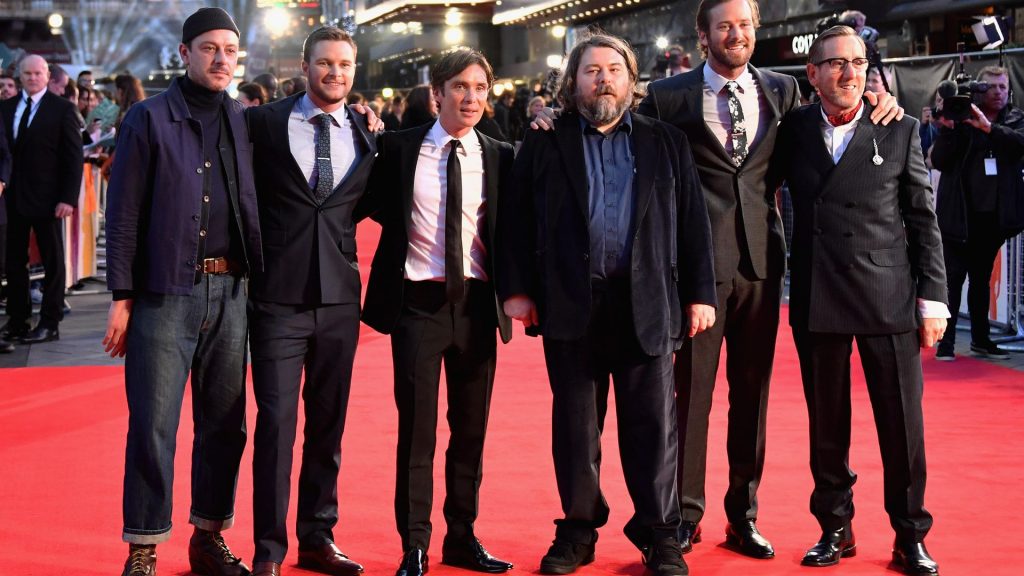
BEN FRIENDS
Wheatley’s work often features the same actors in different roles. League Of Gentlemen and Inside No. 9 actor/writer Reece Shearsmith stars as Zach in In The Earth (2021), but also appeared in High-Rise (2015) – joining Eileen Davies from Sightseers (2012) – and A Field In England (2013), where he starred alongside Michael Smiley.
The Belfast-born actor, familiar from TV series including Spaced, Luther and Bloodlands, appeared in Kill List (2011) alongside Neil Maskell and, as radio reporters, Steve Oram and Alice Lowe from Sightseers. Smiley was also in Free Fire (2016), which starred Enzo Clienti from High-Rise and Armie Hammer and Sam Riley, who both appeared in Wheatley’s remake of Rebecca (2020).
Both Riley and Maskell featured in Wheatley’s comedy-drama Happy New Year, Colin Burstead (2018), whose cast included Hayley Squires, best-known for Ken Loach’s I, Daniel Blake. She now stars alongside Shearsmith in In The Earth.










